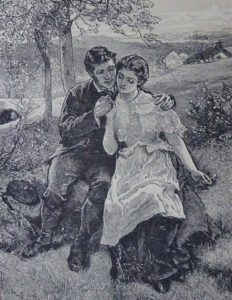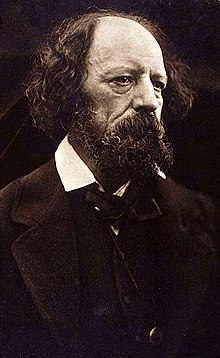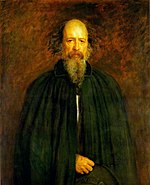Dear Zazie, Here is today’s Lovers’ Chronicle from Mac Tag. Are you a shadow of your own self? Do you own your own self? Rhett
The Lovers’ Chronicle
Dear Muse,
© copyright 2020 mac tag/cowboy coleridge all rights reserved
© copyright 2019 mac tag/cowboy coleridge all rights reserved
“My legs are sore
from my workout.
It will be a miracle
if I can walk tomorrow!”
no, the miracle will occur
when we are together again…
……………………………………….
hot in the sun
cooler in the shade
windy of course
windmill squeaks
as it pumps
nothin’ to do
but wait
and write
boot hills clunkin’
on the wooden floor
are you comin’
tell me where
you want to go
together
it shall be so
© copyright 2018 mac tag/cowboy coleridge all rights reserved
“Well, I do not like rules,
but if we are going to do this
there has to be one rule.”
ok
“We never say I love you.”
and then, you were here
you talked on and on
about where you had been,
what you had done,
what you had read
i sat listenin’, absorbin’
you pause suddenly
“Here I am going on and on
and you’ve hardly said a word!”
i did not want to spoil it
we walk down to Galatoire’s
we fill ourselves on wine,
Oysters en Brochette,
Duck and Andouille Gumbo,
Shrimp Etouffee,
and Bread Pudding
we walk back to our room
and make love and talk
until first light
we watch the sunrise
spent of every need
with you
there was never
another way to be
© copyright 2017 mac tag/cowboy Coleridge all rights reserved
For ambiance purposes; while I am writin’ this (6 August 2016) we have thunderstorms here, so imagine thunder rumblin’ and rain and hail comin’ down. This next poem was inspired by the fine singer and songwriter, Terri Hendrix. I highly recommend any and all of her CD’s. I was readin’ one of her tweets on Twitter (@terrihendrix) when the idea for this poem came to me. In addition to writin’ and performin’, Hendrix conducts songwritin’ workshops and has established a nonprofit community arts center in San Marcos, Texas, OYOU (“Own Your Own Universe“). OYOU offers educational and therapeutic arts programs for everyone including those who face neurological challenges or physical disabilities. The name came from a line in her song “Wallet”. I actually had the privilege of meetin’ her about half a lifetime ago. So I took all of that and put it in a saddle bag, shook it up, and out came this poem.
First, you gotta know yourself, then you gotta accept yourself, then you gotta……
Own Your Own Self
Knew you back when:
We met in San Marcos
We had breakfast
once on the square
You, a full woman who
wrote some fine songs
Me, full of pretendin’
Tryin’ to right myself
From time to time
I’d see you at Gruene Hall
We’d drink a cold beer and
we’d talk and I’d wonder
about what if
But I was too busy
waltzin’ and romancin’,
it turns out, the wrong girl
I knew somethin’
was missin’ in my life
But I did not know what
I tried to write some songs
But while the words would come
the melodies would not
There was something missin’
Something just not quite right
One day, of a sudden,
it all finally changed
I discovered I was
forcin’ my words,
forcin’ myself,
to be something
they could not be,
that I could never be
So I did what
had to be done;
I packed my gear
and my fears and
I walked away
from the wrong girl,
from everything,
and moved out West
Surrounded by
big skies and solitude,
all day long, I read and I wrote
and I wrote and I read
I kept comin’ back to
one thing you used to say;
‘No matter what,
own your own self’
Well, first I had
to know myself
And in time I came to
In the cool, star strewn nights
Then I had to learn to accept
myself and all my faults
And in time I did, here
in the clear mountain air
So, I own my own self,
now after all these many years
and all these many miles
I’m still out West
Where I belong
I miss the high Hill Country rain,
the barbeque, the live music,
and two-steppin’ in Gruene
But I am still dancin’
It’s just that now
I dance with my
words and regrets
I just hope that
remains enough
How else, in the long run,
does a poet’s heart break
© copyright 2013 Cowboy Coleridge mac tag All rights reserved
The Song of the Day is “Lluvia de Estrellas” by Terri Hendrix. We do not own the rights to this song. All rights reserved by the rightful owner. No copyright infringement intended.

Today is the birthday of Barbara Strozzi (also called Barbara Valle; baptised 6 August 1619; Venice – 11 November 1677 Padua); singer and composer. Her Baroque compositions were published in her lifetime.
It is conceivable that Strozzi may have been a courtesan, although she may have merely been the target of jealous slander by her male contemporaries. She appears to have led a quiet, if not slightly unusual life; there is evidence that at least three of her four children were fathered by the same man, Giovanni Paolo Vidman (also spelled Widmann). He was a patron of the arts and supporter of early opera. After Vidman’s death it is likely that Strozzi supported herself by means of her investments and by her compositions.
Strozzi died in Padua in 1677 aged 58. She is believed to have been buried at Eremitani. When she died without leaving a will, her son Giulio Pietro claimed her inheritance in full.
 On this day in 1786, Scotland’s beloved poet and bard Robert Burns, perhaps best remembered for romantic classics like “Auld Lang Syne” and “A Red, Red Rose,” stood before his church a third and final time as public penance for “antenuptial fornication” with Jean Armour.
On this day in 1786, Scotland’s beloved poet and bard Robert Burns, perhaps best remembered for romantic classics like “Auld Lang Syne” and “A Red, Red Rose,” stood before his church a third and final time as public penance for “antenuptial fornication” with Jean Armour.
Pregnant with fraternal twins she would name after herself and Robert, Armour had been moved to stay with relatives in another town when her parents learned of her condition. Her father, hoping there was still time to snag a suitor with better prospects than the penniless Burns, destroyed a document the poet had given Armour promising marriage. But it was all for naught when the local church caught wind of the scandal. Armour officially acknowledged her pregnancy and named Burns as the father.
Burns declared all this a “desertion” on her part, and stood before the church the required three times to receive a certificate declaring him a single man. Burns may have had motives beyond feeling jilted; letters he sent friends that summer suggested he had already found a new paramour and may have impregnated her too. And, there was at least one other illegitimate child to provide for: “Dear bought Bess,” as Burns called her, a daughter born to a servant girl shortly before he had taken up with Armour. When the publication of his first book seemed likely, Burns, fearing the Armours would make a claim on his future earnings, turned his estate over to his brother to ensure Bess would be taken care of.
Burns left for Edinburgh and found success – with both poetry and women – in the months that followed the birth of the twins. He returned to town less than a year from the day he had been declared a single man, and Armour’s parents, impressed by his new wealth, received him with open arms. So did their daughter Jean, and she became pregnant with a second set of twins.
By and by; despite claims that he would never again extend her the offer, despite calling her “ungrateful” and “foolish,” despite comparing her to a “farthing taper” next to the “meridian sun” of another woman he was busy wooing – Burns married Armour. She bore his philandering with patience and apparent good cheer, just as she continued to bear him children – the ninth was born on the day of Robert Burns’ funeral in 1796. “Our Robbie should have had twa [two] wives,” she is said to have exclaimed upon taking in one of his illegitimate daughters to raise.
For all his affairs, Burns was also dealt with rather leniently by the church, which had the custom of making men in his circumstances sit on a “creepie-chair,” or a low stool reserved for public humiliation. When Burns reported for penance on this day 225 years ago, he was allowed to stand in his usual pew.
| The Right Honourable The Lord Tennyson FRS |
|
|---|---|

1869 Carbon print by Julia Margaret Cameron
|
|
Today is the birthday of Alfred Tennyson, 1st Baron Tennyson, FRS (Somersby, Lincolnshire 6 August 1809 – 6 October 1892 Lurgashall, Sussex); Poet Laureate of Great Britain and Ireland during much of Queen Victoria’s reign and one of the most popular British poets. Tennyson excelled at penning short lyrics, such as “Break, Break, Break”, “The Charge of the Light Brigade”, “Tears, Idle Tears”, and “Crossing the Bar”. Much of his verse was based on classical mythological themes, such as Ulysses. In Memoriam A.H.H. was written to commemorate his friend Arthur Hallam, a fellow poet and student at Trinity College, Cambridge, after he died of a stroke at the age of 22. Tennyson also wrote some notable blank verse including Idylls of the King, “Ulysses”, and “Tithonus”. A number of phrases from Tennyson’s work have become common phrases in the English language, including; “Nature, red in tooth and claw” (In Memoriam A.H.H.), “‘Tis better to have loved and lost / Than never to have loved at all”, “Theirs not to reason why, / Theirs but to do and die”, “My strength is as the strength of ten, / Because my heart is pure”, “To strive, to seek, to find, and not to yield”, “Knowledge comes, but Wisdom lingers”, and “The old order changeth, yielding place to new”.
Verse
- Of love that never found his earthly close,
What sequel? Streaming eyes and breaking hearts?
Or all the same as if he had not been?
Not so. Shall Error in the round of time
Still father Truth? O shall the braggart shout
For some blind glimpse of freedom work itself
Thro’ madness, hated by the wise, to law
System and empire? Sin itself be found
The cloudy porch oft opening on the Sun?
And only he, this wonder, dead, become
Mere highway dust? or year by year alone
Sit brooding in the ruins of a life,
Nightmare of youth, the spectre of himself!
If this were thus, if this, indeed, were all,
Better the narrow brain, the stony heart,
The staring eye glazed o’er with sapless days,
The long mechanic pacings to and fro,
The set gray life, and apathetic end.
But am I not the nobler thro’ thy love?
O three times less unworthy! likewise thou
Art more thro’ Love, and greater than thy years.- “Love and Duty”, l. 1- 21 (1842).
- The slow sweet hours that bring us all things good,
The slow sad hours that bring us all things ill,
And all good things from evil, brought the night
In which we sat together and alone,
And to the want, that hollow’d all the heart,
Gave utterance by the yearning of an eye,
That burn’d upon its object thro’ such tears
As flow but once a life. The trance gave way
To those caresses, when a hundred times
In that last kiss, which never was the last,
Farewell, like endless welcome, lived and died.- “Love and Duty” l. 57 – 67 (1842).
- Love lieth deep; Love dwells not in lip-depths.
- The Lover’s Tale (1879), line 466.
- Where love could walk with banish’d Hope no more.
- The Lover’s Tale (1879), line 813.
- Love’s arms were wreathed about the neck of Hope,
And Hope kiss’d Love, and Love drew in her breath
In that close kiss and drank her whisper’d tales.
They said that Love would die when Hope was gone.
And Love mourn’d long, and sorrow’d after Hope;
At last she sought out Memory, and they trod
The same old paths where Love had walked with Hope,
And Memory fed the soul of Love with tears.- The Lover’s Tale (1879), line 815.
The Poet (1830)

- The poet in a golden clime was born,
With golden stars above;
Dower’d with the hate of hate, the scorn of scorn,
The love of love.
He saw thro’ life and death, thro’ good and ill,
He saw thro’ his own soul.
The marvel of the everlasting will,
An open scroll,
Before him lay; with echoing feet he threaded
The secretest walks of fame:
The viewless arrows of his thoughts were headed
And wing’d with flame,
Like Indian reeds blown from his silver tongue…
- So many minds did gird their orbs with beams,
Tho’ one did fling the fire;
Heaven flow’d upon the soul in many dreams
Of high desire.
- Thus truth was multiplied on truth, the world
Like one great garden show’d,
And thro’ the wreaths of floating dark up-curl’d,
Rare sunrise flow’d. - And Freedom rear’d in that august sunrise
Her beautiful bold brow,
When rites and forms before his burning eyes
Melted like snow.
- There was no blood upon her maiden robes
Sunn’d by those orient skies;
But round about the circles of the globes
Of her keen
And in her raiment’s hem was traced in flame
WISDOM, a name to shake
All evil dreams of power — a sacred name.
And when she spake,
Her words did gather thunder as they ran,
And as the lightning to the thunder
Which follows it, riving the spirit of man,
Making earth wonder,
So was their meaning to her words. No sword
Of wrath her right arm whirl’d,
But one poor poet’s scroll, and with his word
She shook the world.
And today is the birthday Andy Warhol (Andrew Warhola Jr.; Pittsburgh; August 6, 1928 – February 22, 1987 Manhattan); visual artist, film director, producer, and leading figure in the pop art movement. His works explore the relationship between artistic expression, advertising, and celebrity culture that flourished by the 1960s, and span a variety of media, including painting, silkscreening, photography, film, and sculpture. Some of his best-known works include the silkscreen paintings Campbell’s Soup Cans (1962) and Marilyn Diptych (1962), the experimental films Empire (1964) and Chelsea Girls (1966), and the multimedia events known as the Exploding Plastic Inevitable (1966–67).
Mac Tag
Follow us on twitter @cowboycoleridge

No Comments on "The Lovers’ Chronicle 6 August – with you – birth of Barbara Strozzi – Burns’ Penance – verse by Lord Tennyson – art by Andy Warhol"